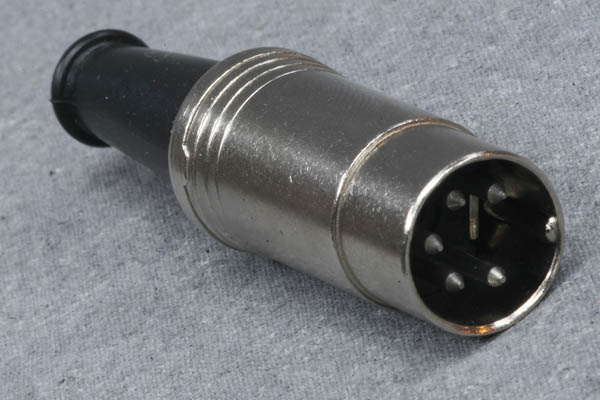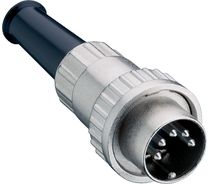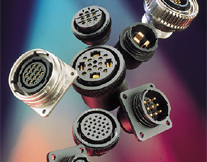I'm fixing up some electronics at my marine ecology lab. One of the gadgets we have is a portable RFID tag reader. It runs off of a PIC board, and has an antenna that attaches to it. The antenna looks like a beach metal detector… a 4'long PVC pipe containing the antenna reader, with a 2' diameter PVC hoop (the actual antenna) at the end. There are 5 wires between the PIC and the antenna reader - 2 power, 3 data. Since the antenna reader already decodes the antenna, I'm assuming I don't have to worry too much about RF.
It is advantageous to have an interconnect between the PVC contraption and the PIC board for easy storage and transportation. Previously, the lab has been using MOLEX connectors for this, and have been epoxying the crap out of it. This hasn't worked so well for them, and they have to resolder the connections every couple of months.
I need a 5-pin connector that can withstand a reasonable amount of stress(almost anything has most strain relief than Molex anyway). It doesn't have to be waterproof. The first obvious solution for me was DB9. However, the PIC board already has a DB9 connection (serial for uploading the data onto a computer), and I would rather avoid any disasters that might occur from somebody accidentally swapping connections.



